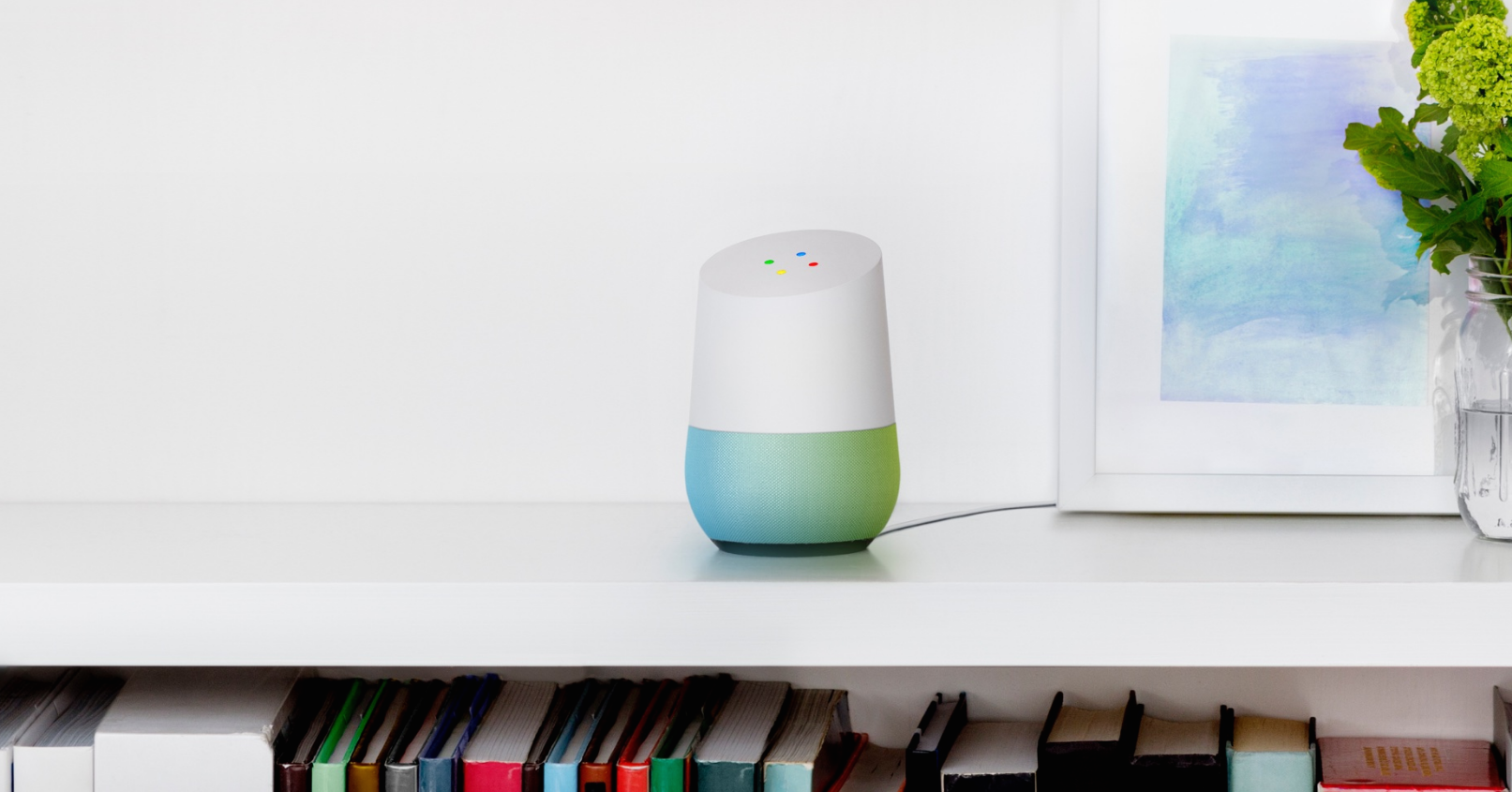A massive denial of service attack last week has already resulted in the recall of a number of webcams that may have been used to aid hackers in taking popular sites like Twitter, Github, Reddit, and others offline throughout the day. Now, lawmakers are asking federal agencies what else can be done to prevent future attacks. [More]
internet of things

Senator Asks Federal Agencies For Information On Massive Internet Of Things Breach

Millions Of Hijacked “Smart” Devices Already Aiding Criminals, Research Finds
Ever since “smart,” connected devices began to form the internet of things a few years back, some experts have warned that we could be facing a future where your toaster, washing machine, and TV become part of a sophisticated botnet used to attack others. Well, those experts say, the future is now. [More]

Google Launching Home AI Competitor To “Accidental Winner” Amazon Echo This Week
If growing up on Star Trek: The Next Generation reruns taught us anything, it’s that the future would be brought to us by computers that could recognize our voice commands and do whatever we asked. And while none of the products on the market today sound like the late Majel Barrett-Roddenberry, we are still surrounded by machine-generated female voices that answer our questions, queue up our favorite tunes, and dim our room lights on request. But the dominant player in that space is one that, just a few years ago, nobody would have expected — because it’s Amazon, not Google, connecting homes. [More]

TCP Disconnects “Smart” Lightbulb Servers, Leaves Buyers In The Dark
This is, unfortunately, becoming one of the most predictable stories of the early 21st century. It goes something like this: new tech product comes on the market. Consumers, finding product solves their problem, eagerly buy. Then the company that made the product turns off the server that made the thing “smart,” and suddenly early adopters are up a creek with no recourse. [More]

Sprint’s Parent Company Spending $32 Billion To Buy A Piece Of Everyone’s Phones
A big tech deal was announced between two international companies today. Japan-based SoftBank bought UK-based ARM for $32 billion, a sentence that’s meaningless to most of us. But put another way, it starts to make a whole lot more sense: the company that owns Sprint just bought the company that makes the parts that make your iPhone actually work. [More]

Bluetooth-Enabled Pregnancy Tests Are Now On The Market
Is there any everyday item that wouldn’t benefit from adding some electronic components and Bluetooth connectivity? Of course not! That’s why you can now buy, in actual stores, a pregnancy test with Bluetooth connectivity. This is apparently because Millennial women are in their peak child-having years, and are incapable of sitting for three minutes without syncing our smartphones to something. [More]

Nest May Compensate Revolv Users Who Will Own $300 Paperweights As Of May 15
There’s a serious problem with “smart” devices that can power items in your home: many of them are designed so that they only work with their creators’ cloud service. That’s fine, as long as your internet access is reliable and the company doesn’t go out of business or decide to shut off the servers where those cloud services run. Unlike Nest, companies should probably anticipate that some users might be a bit upset about this. [More]

Your Home Router Was Probably Out-Of-Date And Insecure Before You Even Plugged It In
Here’s some depressing news for your morning: even if you set up your home network yourself and followed all of the best practices for doing so, it’s probably got some big fat vulnerabilities in it. [More]

Internet-Connected Video Baby Monitors Are Basically The Most Hackable, Least Secure Thing Ever
The implacable march of technology has, in many ways, made parents’ lives easier. But in other areas, it’s added a whole new layer of complication. Like the fact that video-enabled baby monitors, designed to let parents have peace of mind while their kids are sleeping in another room, almost universally have completely crap security that any random stranger on the internet can tap into. [More]

Hackers Can Now Remotely Attack A Gun, Change Its Target, And Lock The Owner Out
Over the past few years we’ve heard a lot about the smart, connected devices that make up the internet of things. From ceiling fans to cars and cameras, they’re everywhere. Unfortunately, anything that can connect to the internet can be hacked through the internet… and now, it seems, that includes guns. [More]

FTC Chair Edith Ramirez Talks Privacy, Data Security
You may now be able to change your thermostat from another continent, your fridge might know when you need to buy more eggs, and your connected TV recommends shows and movies. But is your data being used for things other than keeping your house warm, your eggs in stock, and your kids entertained — and, just as importantly — is it secure? [More]

4 Ways Copyright Law Actually Controls Your Whole Digital Life
We all know that copyright law means you shouldn’t download copies of movies from shady torrent sites, and that you should pay for the music you listen to. We know it means people and companies have rights to stuff they make, like photos and music and books, and that there are legal and illegal ways of sharing those things. [More]

Companies Showcase Hubs That Connect Appliances To Create Secure, Smart Homes
As we know, the Internet of Things – or the connection of all our connected devices – is here to stay. So it should come as no surprise that a number of companies are showcasing products that create a central hub connecting consumer devices to one another, creating a secure, smart home atmosphere. [More]

If You Own Any Of These Types Of Products, Change The Default Password Now
We told you the other day how several electronics manufacturers were shipping products with default username and password combinations that many people never think to change, leaving them open to being compromised by hackers and pranksters. To help those consumers who may not want to get into the gritty details of that story, here’s a quick guide to a number of popular types of products that people may not know they need to change the password to. [More]

If You Didn’t Change The Default Password On Your Security Camera, Someone’s Probably Watching It Stream
Remote access has been a boon to many industries. Home security cameras, for example: not only can you keep an eye on your property in case anything bad happens, but you can do it in real-time, instead of reviewing footage after the fact. But cameras protecting the security of your home may in fact need a serious security helper of your own. And running tens of thousands of searchable livestreams from unwitting camera owners who didn’t change default the access passwords on their devices is certainly one (unethical, intrusive) way to make the point. [More]

Tech Expert Makes Point About (Bad) Security In The Internet Of Things By Hacking A Printer To Run Doom
The more appliances and devices there are out there with internet connections, the more hackers will be able to find security vulnerabilities in those appliances. One security expert found a particular hole that let him remotely install any software onto a whole line of popular printers. How to make a true point about what someone can accomplish with remote access to your devices? Make it run full-fledged video games. [More]

Founder Of One Laptop Per Child: Maybe Net Neutrality Isn’t Such A Good Idea After All
The FCC is still working through the public comments about their current net neutrality proposal, and it will be many months still before any final rule is made. But one industry veteran, with over four decades of experience in defining the digital world, suggests that maybe we want to slow down and rethink this a bit. What if, he suggests, true net neutrality isn’t actually everything we think it’s cracked up to be? [More]


